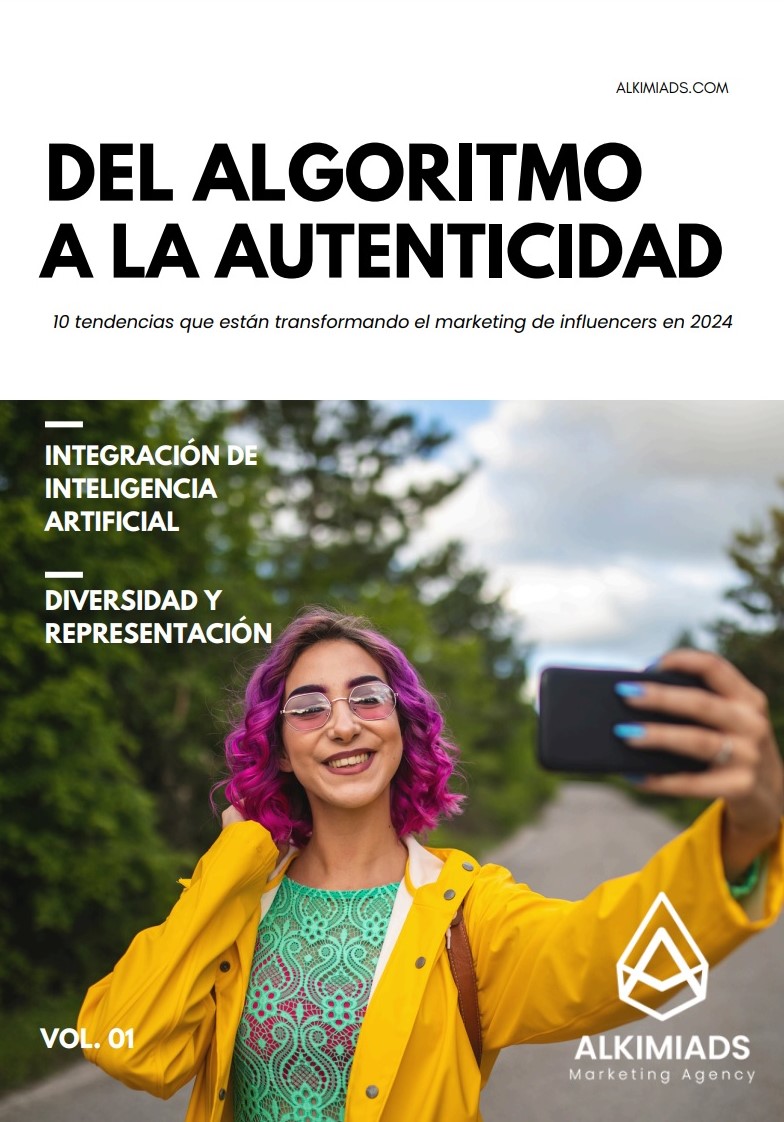In our previous article Navigating Ethics and Authenticity in Influencer Marketing: Responsible Collaborations with Social Media Influencers we began to look at ethical considerations in influencer marketing. In this article, we will look at some points that complement this topic. Read to the end to learn all the nuances of ethics in influencer marketing.
Maintaining Ethical Standards in Influencer Content Creation
Social media users trust influencers they connect with. For brands, fostering trust with influencers creates authentic recommendations that resonate with their audience, leading to more effective marketing campaigns. That’s why it’s important to make sure everyone’s playing fair and honest. By maintaining ethical standards, brands can protect their reputation and credibility while also building trust with consumers.
Among the ways to maintain ethical standards in influencer content creation are:
- Setting clear guidelines for influencers to follow. Brands should provide influencers with specific instructions on what is and is not allowed in their content, including guidelines on disclosure, authenticity, and transparency. This helps ensure that the influencer’s content aligns with the brand’s values and messaging.
- Transparency is another key factor in maintaining ethical standards in influencer marketing campaigns. Influencers should always disclose any paid partnerships or sponsorships to their followers. This helps to build trust with their audience and ensures that followers are aware of any potential conflicts of interest. Transparency also helps to protect the brand’s reputation and credibility.
- Audience trust is essential in influencer marketing, and maintaining ethical standards in content creation. When influencers create authentic and genuine content that is in line with their values and beliefs, their followers are more likely to trust their recommendations and opinions. By upholding ethical standards, brands can ensure that their influencer partnerships are not only effective but also sustainable in the long run.
Table of Contents
Navigating the Gray Areas: Ethical Dilemmas in Influencer Marketing
In the dynamic world of digital marketing, influencer marketing has emerged as a powerful tool to connect with audiences and promote brands. However, this landscape is not without ethical dilemmas that require careful analysis to ensure transparency, accountability, and consumer protection.
Authenticity as a Fundamental Pillar
Authenticity is the fundamental value that underpins the success of any influencer. Your ability to genuinely connect with your audience, based on honesty, transparency, and consistency with your values, is what builds trust and credibility.
However, in the gray areas of influencer marketing, authenticity can be compromised by practices such as:
- Covert advertising: Lack of transparency in disclosing sponsorships or paid collaborations can mislead followers and erode trust.
- Exaggeration of benefits: Promoting products or services exaggeratedly or misleadingly can generate false expectations among consumers and damage the reputation of the influencer.
- Disconnect between image and reality: An influencer who projects an artificial or unrealistic image may lose connection with his or her audience, who are looking for authenticity and shared values.
Shared Responsibility by Influencers, Brands and Consumers: Ethical responsibility in influencer marketing does not fall solely on influencers. Brands also have a crucial role in selecting contributors, developing clear guidelines for campaigns, and verifying compliance with ethical standards.
Consumers, for their part, must be critical and discerning about the information they find online. Education about codes of ethics in digital marketing allows them to make informed decisions and avoid being victims of misleading or non-transparent advertising.
Navigating Toward an Ethical Future: Influencer marketing has the potential to be a powerful tool for growing brands and connecting with audiences. However, it is critical to navigate the gray areas with accountability and transparency. By prioritizing authenticity, clarity in communication, and respect for consumers, an ethical and sustainable influencer marketing ecosystem can be built.
Exploring the Controversies Surrounding Influencers and Social Causes
The influencers have the power to sway public opinion and promote social causes to their followers. However, not all influencers use their platform responsibly, leading to controversies surrounding the ethics of their actions.
One of the main controversies surrounding influencers and social causes is the idea that the number of followers constitutes an ethics signal. Some influencers may use their large following to push their own agenda, without considering the potential harm they may cause. This raises questions about the responsibility influencers have to their audience and the impact their actions may have on society as a whole.
Another issue is the authenticity of influencers’ support for social causes. While some influencers genuinely care about the issues they promote, others may simply be jumping on the bandwagon to boost their own image. This can lead to accusations of insincerity and undermine the credibility of the causes they claim to support.
To summarize, the controversies surrounding influencers and social causes highlight the importance of critically examining the role these individuals play in shaping public opinion. While influencers can be powerful advocates for important issues, they must use their platform responsibly and ethically to ensure that they are having a positive impact on society and how this impacts the credibility of the brands that are associated with each of them.
Analyzing the Influence of Ethical Marketing Practices on Brand Perception
In the age of influencer marketing, transparency builds trust and empowers consumers, making ethical practices crucial for brand success. Influencers hold immense sway over consumer behavior, and ethical partnerships leverage this influence to build genuine connections with the audience. This includes transparency about sponsored content, disclosing partnerships, and ensuring product alignment with the influencer’s values. Ultimately, ethical marketing fosters trust with consumers, strengthens brand image, and drives positive results for everyone involved.
One of the key benefits of incorporating ethical marketing practices in influencer marketing is the ability to enhance brand perception. Consumers are becoming increasingly savvy about the marketing tactics used by brands and influencers. When brands work with influencers who are transparent and authentic in their promotions, it helps to build credibility and trust with consumers. This, in turn, can lead to increased brand loyalty and positive word-of-mouth recommendations.
Furthermore, brands that prioritize ethical marketing practices are more likely to attract socially conscious consumers who are concerned about the impact of their purchasing decisions. By aligning with influencers who share similar values and beliefs, brands can connect with a more engaged and loyal audience. This can result in a stronger brand reputation and a competitive edge in the market.
In conclusion, the influence of ethical marketing practices on brand perception in influencer marketing cannot be understated. Brands that prioritize transparency, authenticity, and alignment with influencers’ values are more likely to build trust with consumers and create a positive brand image. By incorporating ethical practices into their influencer marketing strategies, brands can strengthen their relationships with consumers and gain a competitive edge in the market.
Debating the Ethics of Influencer-Generated Content in New Media Platforms
With the rise of social media platforms, influencers have become a prominent force in advertising and content creation. However, the ethics of influencer-generated content in these new media platforms have been a subject of debate.
Some argue that influencers have a responsibility to disclose any sponsored content or partnerships, as not doing so can mislead their audience. This lack of transparency can blur the lines between what is genuine and what is paid-for promotion. It also raises questions about authenticity and the influence of money on content creation.
On the other hand, some believe that influencers should be able to create content as they see fit, without being burdened by strict ethical guidelines. They argue that influencers are simply individuals expressing themselves and should not be held to the same standards as traditional media outlets. However, this raises concerns about the potential harm that can come from promoting products or services without full disclosure. It can also lead to issues of trust and credibility with their audience.
As the landscape of media continues to evolve, the debate over the ethics of influencer-generated content will likely persist. It is important for influencers to consider the impact of their content on their audience and to be transparent about any partnerships or sponsorships they have. In the age of influencer marketing, building trust with followers is paramount. It directly impacts their credibility and long-term success. By staying mindful of the ethical implications of their content, influencers can navigate this complex landscape. This allows them to continue creating engaging and authentic content that truly resonates with their audience.

Strategies for Promoting Environmental Responsibility in Influencer Marketing Campaigns
When we talk about promoting Environmental Responsibility in influencer marketing campaigns, several key strategies can be employed to ensure that these values are effectively communicated to the audience.
One important strategy is to partner with influencers who align with the brand’s values and have a genuine interest in environmental issues. By choosing influencers who are already passionate about these issues, their promotion of the brand’s message will come across as authentic and sincere.
Another effective strategy is to be transparent and honest about the brand’s commitment to environmental responsibility. This can involve sharing information about the brand’s sustainability practices, recycling and environmental care initiatives, and any other efforts they are making to have a positive impact on the environment. By being open about these efforts, the brand can build trust with consumers and show that they are committed to making a difference.
Additionally, brands can also incorporate environmental messaging into their influencer marketing campaigns in a subtle and non-intrusive way. This can involve integrating messaging about environmental responsibility into the influencer’s content in a way that feels natural and authentic. By weaving these messages seamlessly into the campaign, brands can effectively raise awareness about important issues without coming across as preachy or insincere.
In conclusion, by carefully selecting influencers, being transparent about their efforts, and naturally integrating messages, brands can successfully promote environmental responsibility in their influencer marketing campaigns.
Creating Authentic and Ethical Social Media Posts That Resonate with Users
In the demanding world of social media influencer marketing, authenticity, and ethics are key pillars to building campaigns with authentic impact and building trust in your products and brands. By creating authentic and ethical content, brands, and influencers can connect with their audiences in a deep and meaningful way.
Your brand should follow the following strategies to create authentic and ethical posts:
- Be true to your identity: Influencers should share content that reflects your voice, your brand values, and your unique experiences. Don’t try to imitate others or create a false image of yourself.
- Be transparent: When creating content, influencers should be honest about their opinions, their experiences, and their relationship with your brand. They should not mislead your followers with false or exaggerated information.
Improves your brand image: A brand that is associated with authenticity and ethics will have a better reputation and be more attractive to consumers.
Influencers should follow these guidelines:
- Connect with your community: Respond to comments, engage in conversations, and show interest in your followers’ opinions.
- Be responsible with your followers: Be careful with the content you share and the impact it may have on your audience. Don’t promote products or services that are not safe, ethical, or sustainable.
Benefits of creating authentic and ethical posts:
- Builds trust and credibility: By being transparent and honest, you will gain the trust of your followers, who will value your authenticity.
- Builds loyalty: Users who identify with your brand and your values will be more likely to become loyal and engaged followers.
- Generates a positive impact: Authentic and ethical content can inspire users, generate positive changes in society, and promote social responsibility.
- Provide value: Share content that is useful, informative, or entertaining to your audience. Don’t just promote products or services without offering something of value to your followers.
- Increase engagement: Authentic and ethical posts are more likely to generate comments, likes, and shares, which increases the reach of your message.
Remember: Success on social media is not about having the most followers or generating the most buzz. It’s about building genuine relationships with your audience, delivering value, and making a positive impact on the world. By creating authentic and ethical posts, you can achieve these goals and build a thriving and meaningful social media community.






















